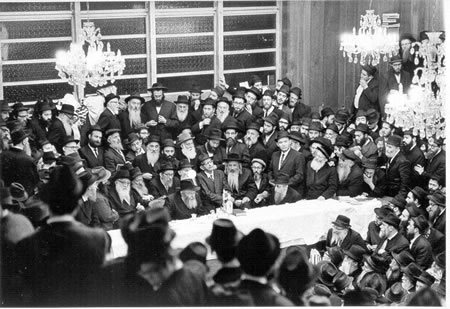Y’hi Hashem Elokeinu Imonu: Part Two; The Possuk, Its Meaning, Hashem’s Relationship “With” Us
Part Two: Conceptual Background to Part Two: I. Elokeinu means, “our G-d.” In Chassidus, “Elokeinu” also is the type of relationship G-d has with us. He chooses to relate to the world as a king, i.e., Melech Ha’Olam (King of the universe), He chooses to relate to us as a father as well. As a general principle, in Chassidus, “Elokeinu” means “our strength and our vitality.” In Hebrew it’s “kocheinu v’chayuseinu,” which connotes our physical life itself, our energy, enthusiasm, life dedication, etc., as explained at…





